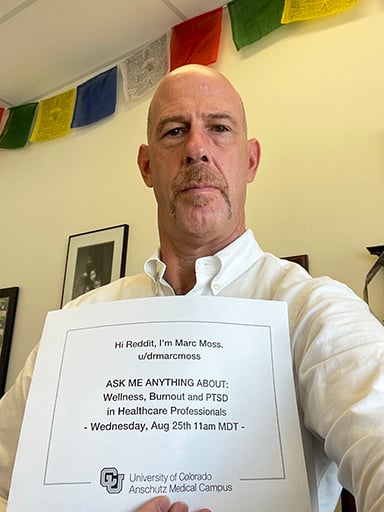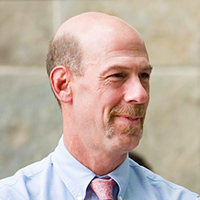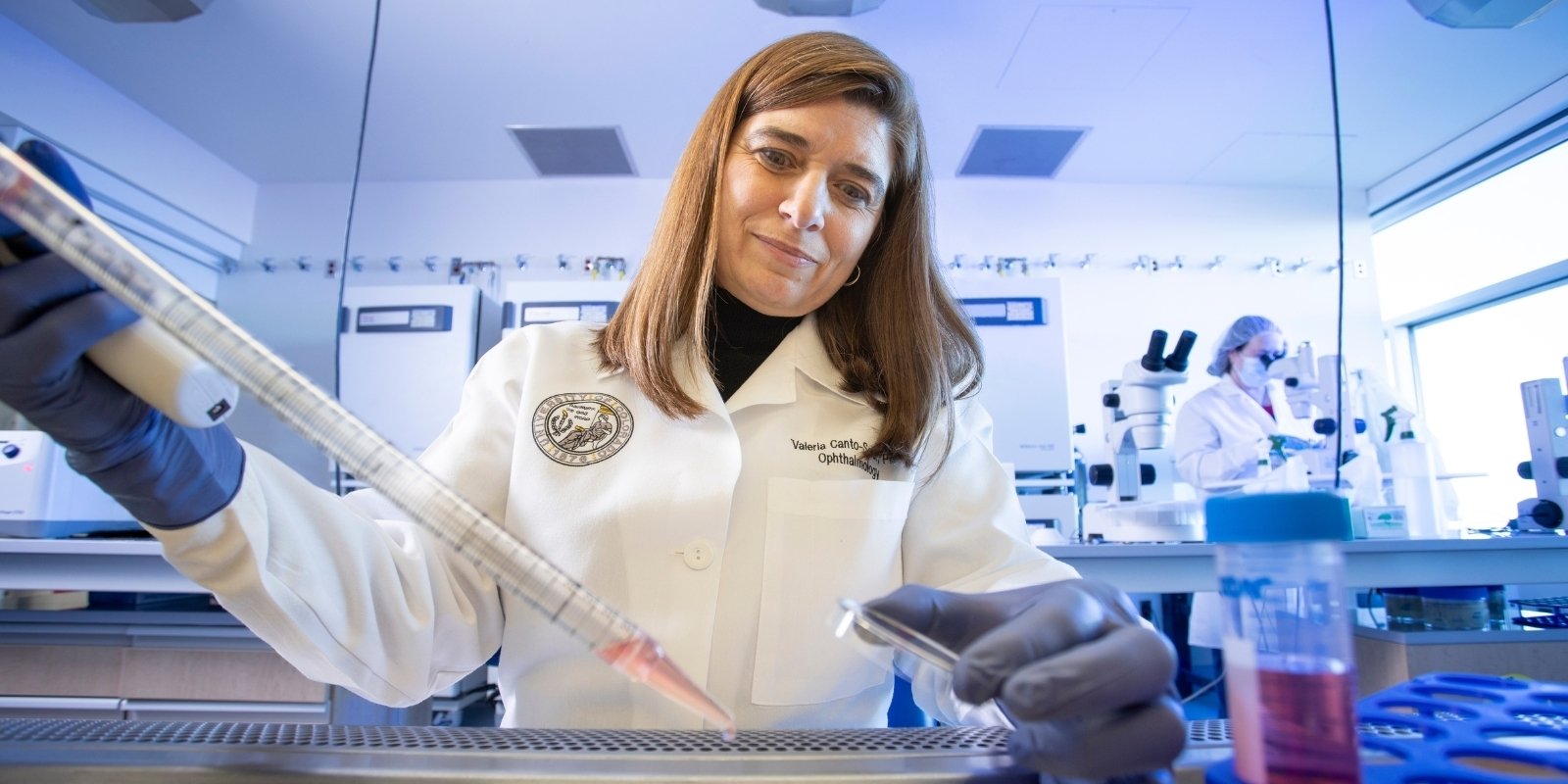What's a good way to treat people with burnout? What are some things we can do to prevent burnout in the first place?
The interventions need to be multi-modal and individualized to the person. Can't force someone to do something they don't want to.
Some of the interventions need to be organizational, they are likely slightly more effective than individually focused interventions. We need to change our work flow, and focus on caring for patients and not documentation (writing notes, filling out forms, etc.) as much. There is a lot of redundancy in our work, also. These are some of the organizational things that can be addressed.
From an individual side, mindfulness training, cognitive behavioral training, creative arts therapy, etc. are all things that can be useful to each person. Again must be individualize to the person.
What practical advice would you give to everyone – nurses, average citizens, law changes, social shifts – to take steps to fix these issues?
What can a nurse do to help? Make sure they take care of themselves. Learn how to leave work at work, and be given time to restore.
The average citizen can help understand the issues and advocate for change. Be supportive of healthcare professionals. The less burned out your healthcare professional is the better care you receive.
Hospital administrators need to adjust the healthcare delivery system to facilitate a long and satisfying career; as there are economic costs to turnover. They can provide the right resources to their employees.
Central agencies can invoke changes such as reducing the amount of documentation for re-imbursement.
Society needs to realize that the pandemic is not ending anytime soon, and we might be left with a fractured healthcare system when it is all over. Some people have called the psychological distress in healthcare professionals the second pandemic.
I'm a teacher, and some of us have this idea that there are a bunch of good teachers that "burn out" early because the system is to taxing on people who have high amounts of empathy so we end up with a high proportion of teachers lower on empathy (not all teachers).
With the amount of suffering and apathy we come across, as well as low support from many community members and leadership it's just too high a price to pay. We also suspect the same thing happens to nurses, do you think this is a moderately accurate assessment, or is there a better explanation?
Absolutely. We have shown that the nurses that are more likely to develop burnout went into nursing because they wanted to help people. Exactly who you want to be your nurse! The best nurses are most susceptible to developing burnout. Sounds like your impression is the same for teachers.
I have heard from a number of doctors that they feel very limited in how they can access mental healthcare because of how some US state licensing boards work. It was already a barrier to asking for help in a stressful profession, but we are now also looking at over a year of our medical professionals coping with this pandemic.
As you study the effects of stress on medical professionals, does this ever come up as a consideration? How does this get fixed?
Yup. It is easier to tell people you have a medical issue, than what is perceived as a mental health issue. Burnout is an occupational health problem.
The Lorna Breen Foundation is working on getting state licensing boards to change this policy of it being a "red flag" to report a mental health issue. We as healthcare professionals need to also lobby for this change to the state licensing requirements.
Do you think there's a swell of people wanting to join the healthcare force and replace those who are burning out, or might they see how the current professionals are being treated and opt for some other professional route?
I am afraid that the COVID pandemic is accelerating the burnout issue in healthcare. As a result people are leaving the profession. This could lead to a spiraling course of more people leaving the profession as the remaining people are asked to do more and more.
I am also concerned that students might not want to pursue professions in healthcare. This is sad, because being a healthcare professional is a great job! I really do like what I do, at its core. A high percentage of people in their 20s are frustrated with their jobs in general and are thinking of taking time off. The pandemic has stressed everyone out.
I am a critical care nurse who is currently on a stress leave from work. I was wondering what aspect of "burnout" are you studying? Are you looking at the individual? The institution? The systems? Only specific counties or cities?
 We are studying all of this, trying to understand more about what are the triggers, and importantly trying to identify treatments and preventative therapies.
We are studying all of this, trying to understand more about what are the triggers, and importantly trying to identify treatments and preventative therapies.
We have to take care of ourselves so we can then take proper care of our patients. The first step is acknowledging the issue (addressing the stigma) and providing the time to address these issues while at work. If we add additional responsibilities to an already long work day, no one will attend those sessions where we can learn how to help ourselves. It has to be incorporated into the regular job description.
I'm a medical student, suffering from burnout and lack of motivation. What did you do in those moments when you were a student? And when do you stop having imposter syndrome?
I think we all feel this way at times. We deal with death and dying, and tragedy. But we also see a lot of good, and can really help people. I try to focus on the good and learn from the tragedy. Can make you appreciate life a bit more.
In regard to the imposter syndrome, that is really common. Again need to focus on all the great things you have accomplished. Stop trying to compare your self to others. Not everything is a contest.
Is there a network of therapists that specialize in burnout for medical professionals? Generic searches didn't produce many results and there's simply no time to start cold calling.
Most psychologists, psychiatrists, and therapists should be able to help our healthcare workers who are suffering from symptoms of burnout. As I mentioned earlier, in addition to burnout there are issues with depression, anxiety, PTSD, moral distress, moral injury, etc.
I agree that this latest wave could really take its toll on our healthcare professionals, one reason we are doing the AMA.
I'm a resident at your institution and we've actually worked together. What do you think should be done to address burnout among residents? COVID-19 has really exacerbated burnout among my peers - I believe even beyond what we would be experiencing baseline.
I feel your pain. Many of us have been emotionally affected by the pandemic. In all my years of being a doctor, this has been the most difficult 18 months. So you are not alone.
Very important to take some time off, so utilize your vacation time effectively.
Try to remember why you went to med school in the first place. It was to help people. Residency is a brief and intense time, try to embrace it. Also the sense of community is very important during training. So make sure you are not feeling too isolated (that is becoming more common in medicine). Residency programs have actually come a long way, but there is always more that can be done.
As an outsider who sees the enormous stress the profession is under at the moment, I am wondering if there is anything I can do to make their life a little easier or brighter.
I’m all for sending pizza to healthcare workers, but is their something more material I could do?
Acknowledge the stress that healthcare professionals are under. Everyone wants to feel appreciated and supported. Reach out to your friends in healthcare and ask how they are doing. Be a good listener. See what they need.
Get your friends and colleagues to get vaccinated. That will help decrease this latest surge of patients, that is extremely stressful for all of us. Even if it just flattens the curve, that is an advantage.
Do you have any recommendations for people who are now starting their careers in medicine for what they can do to avoid burnout? Or do you believe it's unavoidable due to the emergency combined with the mass exodus of medical professionals?
I do not think it is unavoidable. There is a lot of good in our jobs. The first step is acknowledging the issue and removing the stigma.
We need to adapt our job descriptions to maximize the good parts of our job. We need to incorporate more training to teach people to address these issues. Needs to be incorporated into healthcare professional school training and residency training.
As a doctor in the ICU is there a good way to help nurses and respiratory therapists to feel supported and ease their burnout?
First acknowledge that this is an issue, and it is okay to talk about it. Give everyone a voice and normalize talking about these issues. The ICU is a team. I have started to incorporate talking about how people are doing into our ICU rounds. Amazing once we start talking about these issues, some of the stress goes away. Also giving people a voice will reduce some of the moral distress in healthcare providers.
I was wondering if you had any opinions on greenspace within hospitals (therapeutic gardens, indoor plants, or even photos/pictures depicting nature) and the effects on stress levels within healthcare professionals.
Are improvements in access to natural spaces something you wish were more common in hospitals? Any work you're aware of to do that?
Most individuals are happier when outdoors in green and natural settings than in urban environments, yet Americans are increasingly disconnected from nature, spending less than 7% of their day outdoors. Exposure to natural environments removes individuals from their work setting and can enhance recovery and reduce stress related to work.
By creating a sense of being away, natural settings assist recovery from work related stress, provide distance from work, and do not require conscious effort. After 45 minutes of walking in a park, employees develop improved mood, vitality, and a feeling of restoration. The beneficial effects of this exposure can occur at a threshold of only five hours/month.
So we need to build on this, and definitely incorporate nature into our work environments. There was a reason why hospitals used to be built next to gardens!!
I'm seeing burnout in housekeeping, transportation and security staff. My hospital is like "oh well."
This is an awesome question, so glad you asked this!! Everyone who works in the hospital is affected by the stressors in the work environment. Housekeeping workers have been caring for COVID patients since the beginning of the pandemic, making sure their rooms are clean, etc. Very important work that helps patients.
The renewal of our National Endowment of the Arts grant is focused on developing a creative arts therapy program for the non-healthcare professionals (environmental services, transport, security, laundry services, food and culinary, etc.)
As a former pharmacist, I feel like RPhs are “the forgotten healthcare professional.” In my time working as one I saw tremendous burnout among my peers, as quickly as 1 year post graduation. It also seems like new-onset mental illness is almost common. I have seen new anxiety, panic disorders, depression, and even schizophrenic breaks in my colleagues.
My question is whether anybody in your research niche is attempting to study this, its causes, and its impact on both patient outcomes and pharmacist mental health.
The ICU is a multidisciplinary environment, so I work with pharmacists all the time. Actually earlier today, I was talking to one of our pharmacists about how difficult the pandemic has been on them! Don't feel forgotten. One thing we did was expand our CORAL intervention to enroll all healthcare professionals.
Burnout does negatively affect patient outcomes. This was the major reason that burnout became a public health crisis. It was not only affecting healthcare professionals but also the patients. This evidence was a turning point in raising the awareness of this issue.


 We are studying all of this, trying to understand more about what are the triggers, and importantly trying to identify treatments and preventative therapies.
We are studying all of this, trying to understand more about what are the triggers, and importantly trying to identify treatments and preventative therapies.


